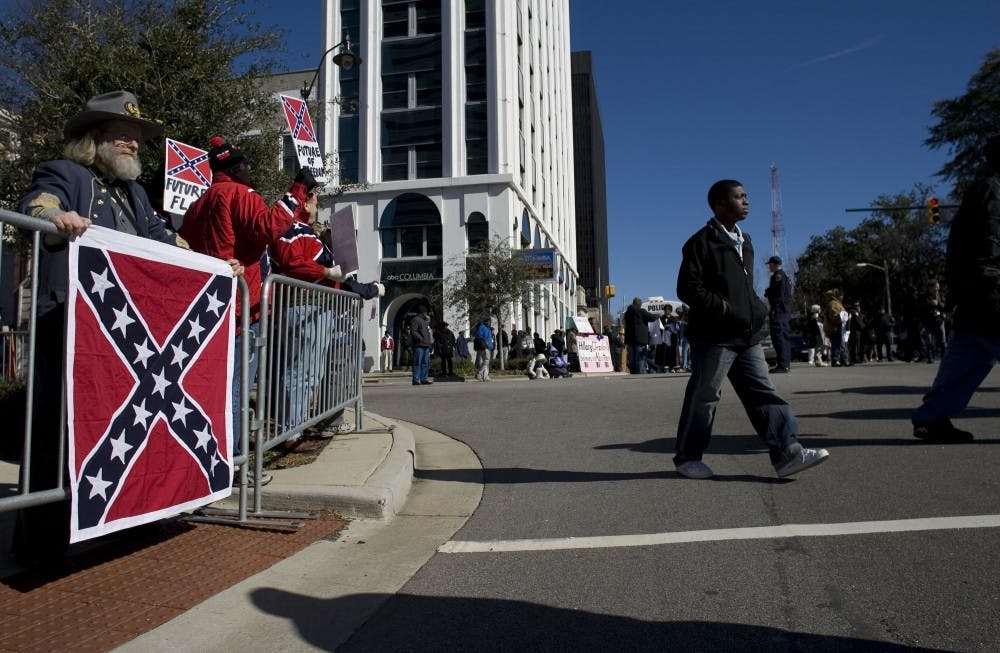For over a century, the meaning of the Confederate battle flag has been the subject of debate in the South.
As tragedy struck Charleston, S.C., with the killing of nine black churchgoers June 17, a conversation was sparked on what place the flag has in American lives — public and private — today.
Several states have since taken action. South Carolina Gov. Nikki Haley called for the removal of the flag from the state capitol’s grounds.
Last week, Gov. Pat McCrory reached out to the North Carolina legislature to change the state law that allows North Carolina to issue license plates containing images of the Confederate flag.
“The time is right to change this policy due to the recent Supreme Court ruling and the tragedy in Charleston,” spokesman Josh Ellis said in an emailed statement.
UNC history professor Harry Watson, who studies the antebellum South, said the flag’s history is complex and has taken many different physical designs and symbolic roles.
After the Civil War, Watson said the flag first directly represented the continuation of a legacy. Organizations were set up to remember the Confederacy as the veteran generation started to die off in the 1890s, he said.
“It was always part of the cultural movement that we call 'the lost cause movement' or 'the cult of the lost cause,'” he said. “That is the generation of the Confederacy — the idea that it was a good and worthy, noble project and it ought to always be remembered in a positive light,” he said.
However, the flag was eventually linked to other movements, Watson said. During the 1920s, the Ku Klux Klan used the flag in some rituals. Mainly, he said, the organization used the American flag instead.



